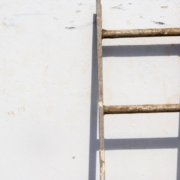Recognising and Changing Race Stereotyping
By: Anne Rinaudo
The National Geographic Magazine is laying bare their record of misunderstanding race. The iconic magazine has commissioned an unflinching special report into its representations of race over the years.
Their latest issue is a mea culpa about race stereotyping by the respected and long-running publication. The title of the main article is unequivocal “for Decades Our Coverage Was Racist”.
Notable for stunning photography and coverage of remote locations and people National Geographic is held in high regard. However, the 130-year-old magazine has recognised that past coverage was often racist, demeaning and ignorant.
Their own transgressions included a 1916 story about Australia with the deeply offensive caption “South Australian Blackfellows: These savages rank lowest in intelligence of all human beings.” Over the years the magazine often ran photos of “uncivilized” native people seemingly fascinated by “civilized” Westerners’ technology.
Throughout 2018 the magazine will run a series about racial, ethnic and religious groups.
The racism the National Geographic acknowledges and regrets is all around us and can be very insidious. It becomes part of an accepted narrative and even the most aware and affected sometimes need to make a conscious effort not to fall into a pattern that fails to acknowledge indigenous know how.
Thanks to the work of Professor Jakelin Troy we have a wonderful window into the past via her research into records held by the University of Sydney.
Professor Troy is a Ngarigu woman whose country is the Snowy Mountains of New South Wales. She is a wonderful storyteller and has pieced together intimate details of the lives, language and knowledge of the aboriginal women she has been able to “meet’ in the archives. She recently gave a talk called “Interlocutors in the archive: Aboriginal women and the collection of anthropological data”.
These women worked to help translate their cultural and social world for the anthropologist.
Even Professor Troy hadn’t realised that she habitually used the name of the white anthropologist to describe the work rather than any credit going to the indigenous women.
It is interesting that there seems to be perhaps a bit of a change in the perception of the importance of the stories and history of indigenous people.
An exhibition at the Australian Museum which opened recently is full of acknowledgement for Australia’s Aboriginal people. They are noted as the first astronomers, the world’s first known bread makers and the pioneers of ground-edge axe technology. These are all signs that point to positive change says Professor Jakelin Troy.
She is the Director, Aboriginal and Torres Strait Islander Research at the University of Sydney.
Listen: Professor Jakelin Troy in conversation with Stephen O’Doherty
Article supplied with thanks to Open House.
Anne is the Producer of Open House – a weekly three-hour live talkback radio show exploring life, faith and Hope from a Christian perspective.







Leave a Reply
Want to join the discussion?Feel free to contribute!